|
The other day, there was a breakthrough news story about the current virus that’s spooking and wreaking havoc across the world. It was the findings of a team of Australian scientists who had discovered the way in which the body’s immune system fights the Corona Virus. The virus is fought in a similar way that the body fights the flu. This is a huge, positive discovery in the fight against the virus. However, it seems to have drowned in the flood of toxic waste stories about the doom and gloom of the virus that’s making great headlines for all of the ‘news’ providers around the world.
Now I don’t want people to think that I’m flippant or dismissive of the virus. The challenge of its containment, the impact on older people and pressure this is putting on healthcare workers and services is real. We still need to put this into perspective in that most people are recovering from it and this story of the discovery by Australian scientists is a wonderful ray of hope. There has been an irrational response by many people across the world, with panic buying and weirdass behaviour. This has seen some extremes of people stopping doing everything and cutting themselves off completely on the one hand and people taking no precautions or mitigating actions on the other. Essentially, the situation is not good, especially economically, but it’s also not as bad as bubonic plague. So why, when there’s good news and when we know the situation will ultimately improve, are so many people panicking and worried? Firstly, people are generally not good with change and this has been a massive and sudden change to our way of life. For some people, there will be no real impact on their lives. For others, it will do massive economic and psychological damage. Some will catch the virus and be ok. Others will catch it and unfortunately, they won’t recover. Other than the flood of news stories which would wear down even the most resilient of us, the fact is that something like this forces people to confront their own mortality. This is something which is uncomfortable and people don’t want to do. People think they have plenty of time and for most people they do. However, this means most people don’t confront anything to do with their own mortality until much later in life. Now this global pandemic which has killed many thousands of people in a short period of time, has brought this home to people. The resulting panic of those who aren’t able to put some perspective on the situation is toxic and contagious in itself. Once a few people panic and face their own mortality, this quickly catches on to others and has thus spread quicker than any virus in history. The world will get though this current crisis. The world will survive, as it did the plague, the Spanish flu, polio, smallpox and countless other pandemics. In times of panic and uncertainty, it’s always good to look for the positives and the wins such as the discovery by the Australian scientists. We should also be thankful and more appreciative of the life and the time we have on this earth. Far too many people take this for granted and when confronted with something such as this and their own mortality, they panic and are unable to put anything into perspective. This is by no means an easy situation and we face tough days ahead, but despite that, there is hope. With the advances in technology and medical research that’s already been done, there will be a treatment/vaccine and or subsidence of this virus and the world, whilst having changed somewhat, will get back to somewhat normal and perhaps the ultimate opportunity out of this crisis will be that nations can put their differences aside and work together for a common global goal that impacts and improves everyone’s lives. For some great news on the research so far: https://mobile.abc.net.au/news/2020-03-17/research-how-bodys-immune-system-fights-coronavirus-covid-19/12059266?pfmredir=sm https://mobile.abc.net.au/news/2020-03-22/doubt-over-contracting-coronavirus-covid-19-twice/12075878?pfmredir=sm
0 Comments
This year at Christmas, it’s important to stop and reflect on the year that has past. Was it a good year? Was it a great year? Was it a year to forget? Why was it like this? How do you feel about work, family life, friends, sport, hobbies? Is your life happy and fulfilled?
It’s often this time of the year that sparks quite polarised feelings about life that we’re either really happy with, or that worry us intensely. The constant bombardment of media, movies and ads showing happy families at Christmas all getting along well, laughing and enjoying their time together can either bring a sense of joy and happiness, or dread and resentment. It’s tough that this time of the year can be the hardest for many people. However, if this is the case, then what are you going to do about it? It’s all well and good to feel sorry for ourselves, but rather than focus on what’s wrong, this is a great time to review what’s really important in life and make some positive changes to build on that. As I’ve written about before, this is not about New Year’s resolutions, which are generally a complete load of crap. Most overweight people who start their new diet are still overweight at this time the next year as there’s not the action to back the change that’s needed. I think it’s more important to think more broadly and look at what will really make a difference in your life. Fast forward to your 90s, which is a good innings. What does a life with no regrets look like? What would you say if you could have a conversation with your younger self? Ok, so I should qualify this with the fact that I’m not suggesting you take the approach in the Decameron, but instead, what is going to be happy, fulfilling and rewarding for you and your family? One place to start is to give back to the community with no expectations. The gift we can give someone through actions of kindness, compassion and generosity can make a huge difference in their lives and what better time to start than now. Join a service club. If you’re under 60, you will dramatically lower the average age of those involved. I have no time I hear you sigh that you have no time. Why is that? What’s the root cause of the lack of time? What can you do to make your time more efficient and effective? For starters, start saying no to lots of things which don’t matter. Our lives can become so consumed by pointless noise. If we filter out that noise and stop doing things which really aren’t that important, then the amount of time we have to do important things which are fulfilling dramatically increases. What’s important to you? How can you focus on that over the next week, month and year? How can you help others? Most importantly, how can you live a wonderful, meaningful and fulfilling life? At Christmas, forget the noise of marketing, of fads and what the world tells you you should be doing for the new year. Instead spend some time focussing on what’s really important in your life and how you can focus on that to ensure every year, despite its challenges, will be a wonderful and fulfilling one for you and your family. Let’s be honest! Nobody likes writing incident reports. They’re kind of annoying, time consuming and just another bit of paper work that you have to do on top of everything else! Added to this, so many schools and organisations make it difficult for their teachers and instructors to complete.
Consequently, when you combine added work with difficult to complete, this results in poor reporting, late reporting and quite often non-reporting of incidents. Ironically, WHS research has shown that the more senior a staff member, the less likely they are to complete a report. Added to this is the deterioration of memory that adversely impacts the accuracy and validity of any report. No matter how good someone thinks their memory is, the longer they delay in writing an incident report, the fuzzier and less accurate it becomes. Important details can be overlooked and left out. Such details about actions taken, mitigation or treatment, could become vitally important years down the track and without a rock-solid incident report, the person and the organisation can be massively exposed to a variety of potential liabilities. However, everyday things happen. The writing of an incident report is put off until ‘later’ and when ‘later’ comes, the events of yesterday or last week are nothing but a distant memory in amongst a busy life of work, family, traffic and cups of coffee. Yet incident reports are critical to our understanding of what happened, causation, consequence and how to avoid it happening again. The ‘bury your head in the sand,’ ‘it’ll be right’ and ‘I’ll do it later’ options are not options at all and all incidents, no matter how seemingly minor or insignificant, need to be reported in a timely and accurate manner. Consistent and timely reporting can highlight patterns or risks which might otherwise have been missed. With so many potential negatives of trying to get someone to write an incident report, no wonder they’re done so poorly. Add remoteness or overseas to the equation and you’re not getting anything wonderful or insightful anytime soon. The end result is an unintended exposure to liability and the inability to learn vital lessons from what went wrong. It was this exact situation and combination of factors which led me to develop the Xcursion software platform. I didn’t want to be doing incident reports at the end of a multi day expedition when I was tired and about to have a day off. I wanted to have it all done way before then. However, at the same time as a director of outdoor ed, I wanted incident reports sent to me from the field as fast as possible, so I could understand what had happened and help provide an appropriate response. Hence, I built the Xcursion mobile app to solve both my problems at once and in doing so, came up with a solution that made it easier, faster and a far more reliable way of doing incident reports. What was the result? Suddenly, there was an increase in incidents!!! Well that’s probably not quite true. There were the same number of incidents, but now they were actually being reported. From this we could finally understand the prevalence of the type, severity and causation of incidents, with some reliable level of detail and accuracy, rather than… nothing. Essentially, as soon as you make something easy for someone to do, then you have a greater chance of it being done. The more difficult and complex the task, the less likely you are to get anything. It baffles me that something so important is often such a low priority until a major incident occurs and everyone is demanding answers. Why not make it easy on everyone? No more inaccurate hand-written reports which are days or weeks old that you have to scan and file somewhere. Just leverage a bit of mobile tech to do it all for you and what can often take ages or not get done at all, could just take a couple of minutes and give you more detail than ever before, helping protect the first responder, students and with greater insight, help you reduce risk for every activity you do. How casually everyone walks past cenotaphs these days. With the world filled with phone tranced zombies who barely see anything, how are they expected to see the ultimate sacrifice of others? Chances are, many people are more likely just to walk head-long into the memorial due to distraction, rather than noticing it for what it’s worth. However, ANZAC Day helps focus people’s attention on the importance of sacrifice, love and friendship for a set of beliefs about how life should be. It’s not to glorify war, but to honour the stand against tyranny and the fight for what is right in this world for everyone to live free from fear, hate and oppression and have the opportunity to live a life of their choosing. Sadly, our world is still a long way from this ideal. In Australia, we live in relative safety and security, but the recent events in our neighbouring New Zealand, highlight that we still have a long way to go and we should never lose sight of the fact that the lessons of the past must inform our decisions into the future. In a time when communication across the globe has become instant, and often overwhelming, it’s worth reflecting on the experience of soldiers on the front line. It took weeks or months for mail to get to or from the front. Letters from the front were read by someone else before being redacted and then sent on. Even innocuous remarks about the experience on the front line might have been struck out, in case they could cause disquiet back home. Yet most tragically, of the many letters that were sent, by the time the letters were received in the home country, the soldiers who wrote them had been killed in action, or missing, presumed dead. With instant messaging and the ability for news media to live stream coverage of war-torn areas twenty four hours a day, it’s hard to fathom and comprehend the lack of information, and the slowness of communication back and forth between loved ones during the wars of the past 100 years. Yet the value of those communications were timeless. Letters were kept and cherished as an important connection from back home, to those who had left to serve.
There’s nothing glorious about war and the scars and emptiness with which it has left so many people, but the fight to defend democracy and freedom is why we must always remain vigilant to protect a way of life that allows freedom of speech, movement, association and the ability for so many to walk around like zombies and see nothing of the world around them. Consequently, on ANZAC Day, it’s important for us to honour those who made a stand against tyranny and oppression, so rather than having heads bowed staring mindlessly at a phone, it’s an opportunity for our nation to bow its head in honour and respect for all those who served to protect the wonderful nation and life we enjoy in Australia today. Last year I bought a keep cup! Being a coffee addict, who must have a decent coffee each day, after watching the ABC’s ‘War On Waste’ documentary, I realised there’s so many ways we can reduce our impact and ultimately save time money and energy. The first step was for me to stop using disposable cups for coffee and instead keep using the one cup each day. Plus I got the right size that maximises the coffee flavour and reduces the wasted milk, a win for good coffee all around. The places that give a 20¢ or 30¢ discount when you bring your own cup are fantastic, as that’s an even better incentive to use your own cup. From a business point of view, it’s costing around 10¢ to 20¢ per take-away cup anyway and add to this the storage space needed and cost of ordering and carrying disposables, then you’ve more than balanced out the cost on this.
However, stepping away from the business case for a moment, what impact can this have in a year. If I’m having at least one coffee a day or more likely, two, this is anywhere from 365 to 500ish cups a year that won’t go into landfill. If you then extend this over a large population, it suddenly turns into millions of cups and tons of waste that can’t be recycled. Now the ABC’s documentary covered all of this in great detail, so I won’t repeat it all here. What’s been interesting with people’s rhetoric about environmental impact is that when people say the problem is too big and we can’t do anything about it, then we must challenge this assumption because it’s a load of rubbish, quite literally. Students today are faced with cleaning up a massive dilemma that’s been caused by cheap products and the disposable nature of everything. Like many problems I’ve encountered through work over the years, they were never of my making, but I ended up being tasked with the clean up job, which is often quite unpleasant to say the least, but ultimately needed to be done by someone to ensure sustainability and growth of something over the long-term. I was recently in Kyoto and this reminded me of the fact that back in 1997, the Kyoto Protocol was signed, which set targets for lowering emissions and tackling climate change. However, twenty one years on, we’re still facing the growing impact on the waste we produce. The US and Australia have recently claimed it’s all too hard and we shouldn’t really do anything about it until somebody else does. This is a massive cop out and it’s like a situation where someone has a heart attack in a crowded place. They’re less likely to be helped by anyone, because everyone else is waiting for someone else to do something about it. However, if we’re trying to teach and show leadership in this space, then we can buck this trend and help out despite everyone else’s hesitation. Don’t get me wrong. This is not about becoming a tree hugging greeny and abandoning the modern world to go and live in a commune. If you’re thinking of doing that, well that’s nice for you, but not what I’m getting at. Instead, it’s about seeing the problem for what it is and its negative impact on the world. Most climate change ‘deniers’ are purely looking at it from what they think is an ‘industry’ point of view, which means if we do something about it, it will hurt jobs growth and our industries. Given the fact that businesses are more likely to look for opportunities to reduce waste, reduce costs and develop new ways of doing things, the political point of view is often in stark contrast with the opportunity for new ventures. It’s these new ventures which our students of today will not only want to do, but if we don’t approach the issue now, they’ll be forced to do, but at a greater cost. So how can we examine and reduce our impact over the next year? Either from a personal perspective or at school, why not create some measurable metrics that you, your family and/or the students create? Firstly, identify areas in which you create a significant amount of waste and organise it into what can be reduced, reused or recycled. Put a big visual chart on the wall where you can record what was done, used, or not used each day, or week, making sure that the time periods and what you’re recording is measurable. The coffee cup is a great place to start, as Australians are overwhelmingly addicted to their daily coffee. What about getting your newspaper online? What about annoying checkout chicks by combining fruit and veg in a single bag? What about walking instead of driving? Look at all of the daily routines and consumption and see what could be reduced? How much money could this save you in a year? When you’ve worked all of this out, why not also get a piggybank and for every time you make a saving, why not put that 5, 10, 20¢ or $1 or 2 in the piggybank and see how much you have reduced your costs by the end of the year. This is a great project to do at home with the family or at school with the students and a valuable environmental and business exercise. The reality is that we do have an impact on our environment and we also have a responsibility to look after the environment, because the more damage we do now, the greater the mess will be for the next generation to clean up. Whilst I enjoy walking away from a cleaned up mess, the time, energy and effort that goes into the clean up, it is always far greater than preventing the mess in the first place. Next year, look at what you can do to help address a global issue that affects us all. Even if your neighbours aren’t doing their bit, forget them. Show some leadership and take the responsibility into your own hands, because the difference you make, can help shape a better future for everyone. Ok! You’re probably back at work this week after having had six or seven weeks off over the summer break. Sadly, as with pretty much every other year, you’re most likely sitting in a school hall/auditorium being talked at by someone with ‘great’ ideas about teaching. They’re probably talking endlessly about some new crappy research or study they’ve done over the break whilst you were just lazily stretched out on the beach.
I always enjoy the attempted guilt tripping by some people in schools, as it highlights how poorly they’ve thought through the whole back to school concept each year. One strange person I used to work with would regale everyone with stories of how hard he worked in the holidays. None of us ever knew on what exactly, as there was never anything that actually needed doing over this time, but all the same, apparently he’d turned up each day to do it. However, rather than force everyone to politely sit in meetings all day on the first day back, why not carry on the spirit of the holiday season and have a day out! Since sitting in a room tends to achieve nothing anyway, what have you to lose? Now what would be a far better use of time would be the welcome back staff initiatives day! Don’t tell them in advance. Surprise everyone with it. Come up with a day of challenging adventures and activities involving team building and problem solving. Start with something like a locked room scenario and then move onto a scavenger hunt style rogaine for which the clues ultimately lead to a central location where staff gather for a BBQ dinner to celebrate the start of a new year. This not only would be awesome fun, but gets teachers in the frame of mind for a year ahead in which they might face challenges they’ve never come across before. Helping staff to build practical confidence working with others and solving problems can help with all sorts of unforeseen issues that crop up every year in schools. The dinner afterwards to celebrate is always a good way to show gratitude in advance. Often we only have parties or celebrations at the end of things, but what better way to motivate and build staff morale than saying thank you ahead of time. The educational benefit for this sort of day for both staff and students is the fact that the more education needs to focus on the transference of experiences and the development of practical skills, the more teachers need to have this sort of skill set themselves. This is therefore not only a great way to start the year, but a great way to help positively develop staff in a fun and proactive way. Unfortunately, if you’re reading this on the first day back this year, you’re probably sitting in a room filled with teachers dreading the next six hours. But hey, there’s always next year! Have a wonderful year ahead! To really understand how incompetent some people are when it comes to reporting incidents, you need only look at my old school. Wait, no… not the one of which you’re thinking! Let’s go back further to when I was in a Government high school myself.
It was the 90s, an almost lost decade when the great fashion styles of the 80s were now dead and replaced with slightly more conservative hair cuts and mobile phones that came in a bag. Yes that’s right, A mobile didn’t fit in your pocket. It came in its own bag. They were enormous! I remember that everyone thought that people who carried their own bag phone around, must have been either super important, or a complete tosser! In reality, it was the latter, but I digress. Whilst I prefer not to talk about my high school experience, because it could lead to far too many expletives being used in every sentence, the remarkable thing about life is the fact that we can learn some great lessons from complete idiots. Just take a look at the Darwin Awards, which is a great testament to this fact. Sadly, I don’t have another contender for the Darwin Awards on this occasion. However, there’s no shortage of idiots involved, so for those of you involved in risk management, this is what not to do when your school bus gets hit by a semi-trailer. Now it wouldn’t be fair to talk about the day trip to Narrabri without putting it into some sort of context. Why were we travelling two hours from Tamworth in Northern NSW to Narrabri just to have an argument? For me, this was one of the most exciting days of the year. It was the regional debating championships and for one, it had me out of school for the day, which was always preferable. More importantly, it was one of the best debating competitions around. Sadly, the English staff who were supposedly running debating, didn’t share this view. Since it wasn’t Rugby League, the rest of the school had a dim view of it as well. The only time I’d actually been to Narrabri for the championship was two years before when I was in Year 7 and we did very well, getting into the finals but coming runner up at the end of the day. The next year however, one of the students slept in, and so rather than leaving one student behind, the stupid teacher waited and did nothing for an hour and a half, until the student got on the bus. We arrived massively late and forfeited every single debate. Yet another stellar moment for the English Department. However, I’ll leave it at the fact that the English Department and I did not get along. There was some unpleasantness. I remember in Year 12, I was excluded from the debating team for apparently being too argumentative… but that’s a much longer story for another time! Back to the matter at hand. I was thrilled to be heading off to Narrabri for the day of debating. It was a knock out impromptu debating competition, which I loved and given the previous year’s mess, I was eagerly anticipating getting there and at least competing in the first round! Despite the fact that it had been raining overnight and drizzling that morning, all was going well. I was picked up on time in town, which was a pleasant surprise. Jumping on the bus, I found a seat right in the middle of the mini-bus on the driver’s side. It was on the outskirts of Tamworth when I first noticed the bus seemed to be all over the road. It was raining more heavily and the driver, one of the illustrious English teachers, had managed to slip the bus off the road twice into the soft verge at the side of the bitumen. On the second slip I banged my knee hard into the seat in front of me. “What an idiot,” I thought. (I was thinking worse than idiot… but I’m keeping this PG). This year we were in no hurry, but the teacher seemed hell-bent on racing the whole way there. Another twenty minutes on and with a few more bumpy shunts all over the road, we were close to Gunnedah and approaching a narrow bridge over the Mooki River. It was raining. We seemed to be speeding in a bus that had already slipped off the road a number of times and now were approaching the narrow wooden Mooki Bridge. I glanced up to see a semi-trailer heading in our direction. It was half way over the bridge. Then everything suddenly slowed down. I don’t remember hearing the screech of the wheels, but at some point the teacher had slammed on the brakes, the wheels had locked up and the bus spun around in slow motion 90 degrees. We were now sliding sideways straight along the road, completely out of control. Out my window, a massive bull-bar- covered grill was coming straight for me. Nothing profound was going through my mind as I grabbed to push my back hard into my seat and braced myself against the seat in front. There were no seat belts and we were about to be T- boned in the middle of the bus. It was the quick thinking of the truck driver who saved us that day. As I watched helplessly from my seat, the massive bull-bar came closer and closer. Suddenly the rig of the semi-trailer veered sharply left. It’s wheels shifted and rumbled off the side of the road. The driver was now trying to turn hard left and the bull bar was facing slightly away from me, but with the truck close to us now and with nowhere left to go, I held my breath. The bus was deathly silent. The most frightful, deafening sound of crunching metal smashed the silence. The semi had clipped the rear of the mini bus. The side windows shattered. Glass sprayed slowly through the air like a thousand diamonds hovering slightly, as the bus spun violently, before arcing to the floor. Glancing back, I saw the semi-trailer roll onto its side and into a ditch next to the road. We came to an abrupt stop. I sat there stunned as everything seemed to return back to normal speed. “I’ve got to get off the bus,” I thought. “What if it explodes?” With my ears ringing, I could now hear screaming and shouting throughout the bus. All I could think of was what if another truck comes along and hits us? I scrambled off the bus. It sat awkwardly, still halfway across the road. The massive semi-trailer lay motionless. Despite our teacher being a massive tosser, unfortunately he didn’t have an enormous bag phone, so we had to call emergency services 90s style!! I ran across the old narrow wooden bridge to the other side. Sure enough, another truck was picking up speed as it headed out of town. Standing in the middle of the road I flagged him down. I can’t remember what I said, or even if it made any sense, but with wreckage strewn all over the road ahead, it was fairly obvious we needed help. The truck driver got on the CB radio and soon we could hear the sounds and see the flashing lights of the ambulance and police racing towards us. A couple of students were still on the bus. The teacher had run off to the other vehicle and not bothered to check on any of us, despite the common sense rule of check your students! Given the fact he should have owned a bag phone, this wasn’t surprising in any way. As in every movie climax after the life or death conflict has been resolved, the flashing lights and uniforms around us seemed to create a sense of calm. I think I was too stunned and possibly concussed at this point to really be feeling anything. Although, I remember thinking, “We’re going to be late for the debate again!” A couple of students and the truck driver, who in his superb efforts to save us had broken his leg, were loaded into ambulances and rushed off to hospital. We were loaded back on the bus which still could be moved and driven to hospital. To say I was reluctant to board the bus was an understatement, especially with that guy at the wheel, who in my opinion was completely responsible for everything that had just happened. However, the police determined the bus could be driven only about 4 km to Gunnedah Hospital. We sat around and waited to be seen in hospital. One after another, a doctor checked us. My knee was sore and I felt exhausted. Otherwise, I was fine. For us, the ordeal was pretty much over, but for everyone else it had only just begun! Thanks to modern forms of communication at that time (the CB radio), which could be easily listened into by anyone, the 8.30am local ABC radio news had already broadcast the accident informing all the northwest that “a bus from a Tamworth school had crashed.” Panic arose for some primary school parents whose children had left that morning for Canberra. The 9am news stated, “The bus was not from Oxley Vale School.” The phones at our school, those ones that plug into the wall, went into meltdown, as only a tiny bit of information was released on the radio. By 11am, the school was named. It didn’t say that it was the debating team, a significant point by which most parents would have known it didn’t involve their son. Everyone, however, had assumed it was a football team or some other excursion and thus many parents were trying to ring one phone number all at once. The parents with children in the debating team had also found out and couldn’t contact the school due to the phones being engaged. If there’s one thing you should do in the event of a critical incident, it’s inform the parents of those involved as soon as you can! Release a detailed statement to the rest of the school community based on clear facts and in line with the needs of the community. Failing to do so, creates more problems. It creates panic and uncertainty and parents will fill in all the blanks you’ve left for them with their imagination. Soon parent imagination can turn into pseudo facts and you will have an even bigger mess on your hands. It’s hard to respond to that and much harder from which to recover. Rather than using another phone line to call the parents of the students who were involved, the school did nothing. Yes, that’s right! Nothing at all! The hopeless response to this major incident is probably one of the reasons why I believe risk and incident management is so important. Seeing people do something so badly, usually prompts me to do the opposite and make sure it’s done properly. A teacher at the school told my older brothers and gave them the tiny bit of information that was heard on the radio. One brother rang our mother at her work with the words, “The bus has crashed, but David is all right.” She in turn rang our father at his work and he kept dialling the school number to see if he should drive to Gunnedah or where. The school sent a teacher in another bus to come and pick everyone up from Gunnedah Hospital. There wasn’t anything wrong with this in itself. We were collected at the hospital, driven back to Tamworth and dropped off either at or near home or at a parent’s work with no meet and greet to the parents, nor any sort of handover. I was the only student with immediate parent contact. One boy was set down in town and had to wait about three hours for his regular school bus to take him home to Manilla. A number of students were dropped off at empty houses. After almost being killed in a horrible collision with a truck, the teacher somehow thought that dropping shaken teenagers off at an empty house was an appropriate thing to do! Even the most useless and incompetent teacher should have known better than that! Perhaps the teacher who picked us up should have been carrying two bag phones. As he was head of welfare for the school, it’s rather ironic that he appeared to know nothing about student welfare, but again that’s my opinion and a much longer story for another time in regards to what I believe was his incompetence and inability to fulfil an important role. The idea that it was ok to drop students off at home when nobody was there after a traumatic road collision was stupid even for the 1990s. I remember being dropped off at Tamworth West Primary School where my mother was teaching her Year 4 class. I wandered in, still possibly concussed and remember lying down somewhere in the classroom and falling asleep. Mum sensibly refused to take me home in her lunch break. What should have happened? All students should have been driven back to school. No one should have been left alone. Day boys could have been left under Matron’s watchful eye, until their parents arrived to collect them. Boarders could have been supervised by Matron and/or their dormitory master. From an incident response and management point of view, the lack of communication was pathetic. It might have been a lack of training, a lack of response planning, or just the fact that I went to a school that appeared to be run ineffectively. The bottom line was that there was no plan in place if something went wrong. It was evident that everyone was simply making things up as they went. Whilst critical incidents are fluid in nature and you may need to respond in an inter-active way to contain the initial situation, there is absolutely no reason why any school or organisation can’t have clear actionable steps in place to be able to respond quickly and effectively to a major incident. It’s vital that you inform parents and if needed, draw on resources in the wider community, such as local radio. Over the past 25 years, at no time did anyone from the school contact my parents to let them know what happened! At no point was the incident ever debriefed! At no point did anyone ask about the debating! Two years in a row, we’d forfeited the most awesome competition in the region and to this date, the school still hasn’t officially told anyone that the bus crash actually occurred. The Principal suddenly left the school and the questions about the crash, that parents asked at the P & C meeting, were unanswered. Despite all of this, I learnt some very important lessons as to what not to do in a situation like this. One thing it highlights though, is the fact that for all the carry on I’ve seen over the years from people who don’t understand risk management and incident management, the fact remains, being on the road with students is one of the highest risk factors possible. Driving to the conditions, avoiding peak periods of traffic and having a fatigue management policy and procedure in place is vital to reduce this transport risk that’s part of every trip away from school. Let’s put this back in context. We were going to a debating competition!!! Sounds very low risk and not even worth doing a risk assessment on, yet had the truck driver not reacted the way he did, our bus would have been cut in two and a few more sun-bleached crosses would have stood scattered at the side of the road, lovingly surrounded by flowers, tended only, in decreasing frequency, by the broken families who were never told what really happened that day. ANZAC Day is a special day for Australians and our close New Zealand allies. It’s a day born out of one of Britain’s greatest military mistakes. However, when faced with enormous adversity, our Australian and New Zealand troops literally dug in and bravely held their position for 8 months before a carefully planned withdrawal was carried out. At this point, I should add that it was the ANZAC’s ingenious creation of a counterweight trigger mechanism that kept firing the guns at random intervals to give the impression that they were still there whilst secretly they withdrew.
Many lives were lost on both sides at Gallipoli, on the Western Front, in the Middle East and throughout the stalemate that lasted years. Even as the world tried to move on from the horrors of a war that shattered so many lives and devastated our country towns, the next massive conflict was already in motion. It’s easy for us to look at conflicts and demonise those we fought. In fact, a quick look at propaganda from the time, that’s exactly what was done to encourage so many to enlist and fight. However, those we fought against were not savage looking demons hell-bent on destroying the world. Their experiences of war and the stories of soldiers from both sides of these global conflicts, as reflected in personal journals and letters home, show how similar the experience and loss was no matter on which side they were. The story of the soccer game in no mans land between the allies and the Germans on the Western Front at Christmas time, just goes to show the conflict wasn’t between the individuals. In fact, given other circumstances, amazing friendships could have emerged from such experiences. However, all the conflicts in which our nation has been involved since the dark days of WWI have been driven by our values and beliefs in what is right and wrong in this world. As Australians, we don’t tolerate political tyranny in any form. It’s always been in our DNA as a nation and a global leader to fight for what we believe is right. The sacrifices our soldiers made and continue to make, are to ensure we can live in a society that’s free of tyranny, dictatorship and oppression and filled with opportunities for everyone to live a long and enjoyable life of their own making. The world is far from perfect and conflict rages on throughout the globe, driven by twisted ideologies, desire for power, influence and greed. Not everyone has the same opportunities we’ve had as Australians, but all of this comes down to those who have given their lives, so we may live free. This is an impossible debt to repay and we can never truly understand the losses that so many families and communities suffered as a result of war. Every year on ANZAC Day, we as a nation get the opportunity to say thank you to those who have so selflessly given their lives to protect us and our way of life from tyranny. Lest We Forget. After a recent hike, during our debrief, one of the students made a comment which was quite profound. It made me seriously rethink my approach to the whole subject of leadership. We were talking about what makes someone a leader. ‘Taking control’, said one student, ‘making things happen,’ said another. This continued for some time with similar answers more about command and control than anything else, until one boy called out, ‘helping others!’
I asked the boy to explain what he meant and the discussion continued further around the topic of helping others out. Suddenly, one of the boys said, ‘Well, why not call it helpership?’ I thought about this for a moment and it struck me. What a profound statement! Whilst I’m sure someone has come up with this before, I’d never actually looked at leadership from that point of view. Even though as a leader, that’s exactly what you’re doing, I’d always explained leadership in a different way, more about looking for opportunities and inspiring those around you than the idea of helping others. However, when working with students, especially younger ones, the idea of helpership makes a lot more sense. Through a straight forward comment of one of the students, I immediately found this to be a much easier and more accessible way for students to understand leadership than any other method I’ve come across before. We continued to run with it and the discussion turned out to be a very productive and meaningful one for the students who had come up with the idea, as well as for all the other students involved. Often leadership gets confused with the sense of largess military or political leadership. The vision of a president tweeting something stupid or a repressed dictator joyfully pressing launch buttons for his collection of inter-continental ballistic missiles, further confuses the subject as neither of these projected figures are true leaders. Often for students it’s even harder trying to understand the concept of leadership when bombarded with these political figures in the news every day. When people hear the term ‘world leader,’ they think of visible public figures who have somehow risen to power and often obtained their position through dubious means. Whilst this is a misconception about leadership, it’s an easily made mistake. The reality is that a leader is there to help others and not themselves. If you look at leadership in a military sense, leaders are helping others to achieve goals under demanding and often life-threatening circumstances. If you look at it from a business sense, leaders are helping others to achieve common goals and a vision for their company that’s greater than any of its individual parts. If you look at leadership in sport, again it’s all about helping others to achieve common goals that the individual could never achieve alone. However, for many, leadership is a concept that’s hard to grasp and it’s often confusing and difficult for people to differentiate between qualities of a leader and traits of a manager. Much of this comes from experience and context and many students might also only see leadership as what teachers do. They could see it through their sports’ teams in which someone has been nominated as captain and everybody must listen to the captain or else be dropped from the team. Again, these are not necessarily the best ways to learn about leadership unless the person in that position is actively helping others. If team building and leadership are important goals for your school, then instead of working with complex leadership theory (of which there’s a huge amount of literature), start with the concept of helpership. It immediately changes the conversation and makes the discussion more accessible. Rather than somebody being in charge and dictating orders, which is what a lot of younger people perceive leadership to be about, frame the discussion around helping others. This approach can change the entire mindset as to what an individual can do to become a leader. As a result, you can develop leadership and mindfulness in students as they look for ways to help each other, rather than thinking that they need to tell each other what to do. As students progress through their high-school years, they’re searching for a sense of self, a sense of belonging and a sense of how they can make a difference in the world. Consequently, developing positive leadership qualities throughout this time is vital and can make a huge difference to their lives and the lives of those with whom they’ll interact no matter what they choose to do. Ultimately, this can be a powerful lesson and an important one to develop leadership skills in young men and women. Whilst leadership development is often far more complex than the idea of helpership, if students have it in their minds when they’re just starting to think about leadership and where they fit into the world, this can have a profound impact on their longer-term leadership development and success as a leader. Helpership starts the conversation in an assessable way so students can begin to understand that, unlike the political egotists of the world, leadership is not about you. It’s about others. It’s about shared goals and values. It’s about the welfare of others. It’s about putting yourself second and the needs of others first. It’s about service. So when you’re thinking about your next leadership program for teens, why not simply re-frame the language? You don’t have to call it a helpership program, but it’s well worth using the concept of helpership as a key idea to help students to start to really understand what leadership is all about. For me the new year is always an exciting time. I love Christmas for one as it’s a time of hope and reflection on the goodness in humanity. It also helps us move on from mistakes of the past and look forward to the future possibilities in life. However, as I mentioned around this time last year, it’s got nothing to do with shallow New Years’ resolutions that barely last till sunset on 1st January. It’s far deeper and far more important than that.
The end of the year is instead a time to think big! If you look at the story of Christmas, a simple baby clothed in nothing more than a collection of rags in a barn, surrounded by farm animals brings a message of hope, the likes of which the world has never seen before. It’s simple. It’s raw. It’s completely unassuming and it’s shaped the world for millennia. That simple message of hope has brought people together, healed wounded relationships and helped generations to imagine a better world. Our world is far from perfect and the reality is that it’s filled with inequality, despair, hatred, greed and fear. However, with massive problems, come great opportunities. Whether it’s through food aid, clean water projects, affordable shelter or education, as global citizens living in Western democracies we can make a difference. If you take a quick look for example at the World Food Program - www.wfp.org. They’re fighting famine and starvation across 80 countries and helping feed approximately 80 Million people each year. What’s the cost of a single meal to keep someone alive? 39¢ which equates to $1.17 per person, per day! When you think how much we spend on a coffee, this puts into perspective the extent of the inequality in the world and how even going one day without a latte could feed someone for half the week! Back in 2010, Josette Sheeran set out 10 Ways To Feed The World and whilst hunger is still a major issue, the core principles of how individuals and groups can help address this major problem remain the same. It’s about taking real action and this is what makes the difference in any situation. If you do nothing, nothing will change. If you take real action, then you can change the lives of others for the better. In a world where people believe they’re making a difference by changing their Facebook image overlay or liking an image after another tragic bombing, shooting or vile act, we need to avoid such shallow sentiments and look for real ways to make a difference. Even if it’s just making a difference to one person, one family or your local community, this will have more of a lasting impact than the pointless liking of a digital image that will disappear as quickly as it appeared. Armchair activists that think they’re doing something by clicking a button, are as useful as fly screens on submarines and should be avoided at all costs. Hence, what can you do? On one level, you could donate to an organisation that helps feed countless people across the world. On a much more pro-active level, you could join a community service group, help out a disadvantaged school (sadly in Australia we have many disadvantaged schools despite our overall national wealth) or you could even help out with meals on wheels for elderly members of the community. There are so many opportunities to make a difference and once you break down the problem into smaller parts and take some action to do something about it, you can start to make a real difference. Despite this, as just one example, you don’t have to focus on hunger. There are countless other social, economic, health and well-being issues throughout the world that need to be addressed. From clean water, to education, to poverty, to slavery and freedom of expression, the world needs your help. Even if it’s only a small contribution, it’s still important and far more effective than doing nothing at all. In 2018, don’t let enormity of the human condition overwhelm you or stop you from looking at the opportunities to make a difference. As my old friend said, ‘How do you eat an elephant?’ I replied, ‘Why the hell do you want to eat an elephant?!! That’s kind of weird and upsetting!’ He then told me it was a metaphor and he really didn’t like to eat elephant (or so he says…). But seriously, how do we take on massive problems? We approach them one step at a time. If everyone took on even just a small community service project, or helped someone out in just a little way, with each step, we move closer to a better world and one in which inequality, violence, hatred and fear is a thing of the past. As this year comes to an end, think about the importance of the Christmas message that remains so strong and important after 2,000 years and from this, consider what positive impact can you have on the world as we know it, throughout the year ahead. |
Categories
All
Archives
April 2021
|
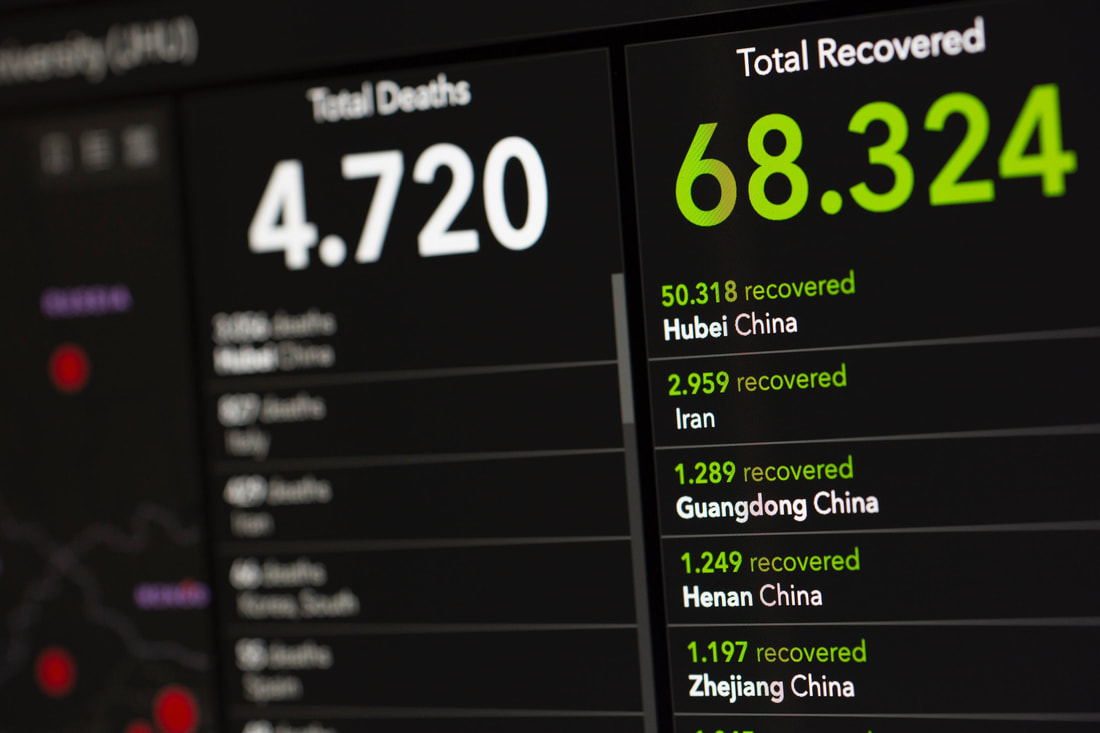
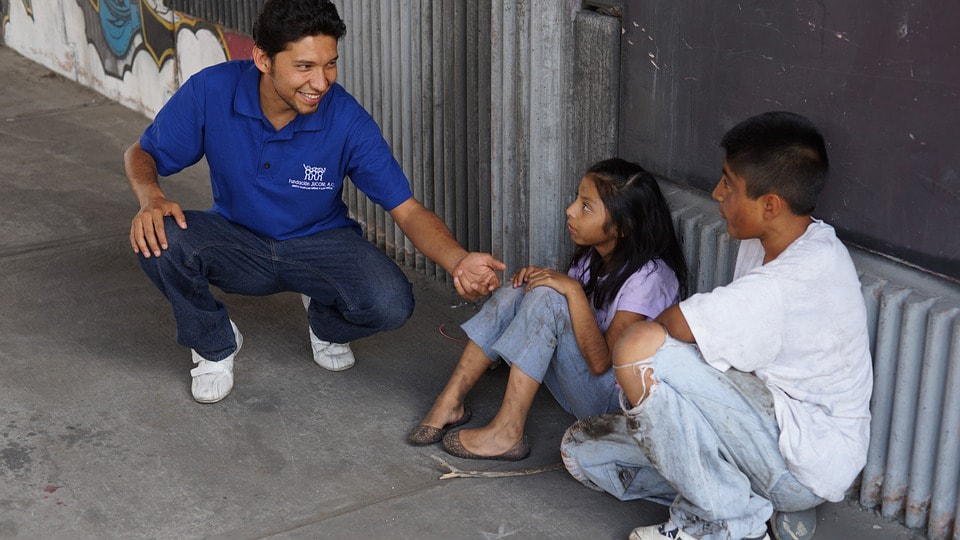

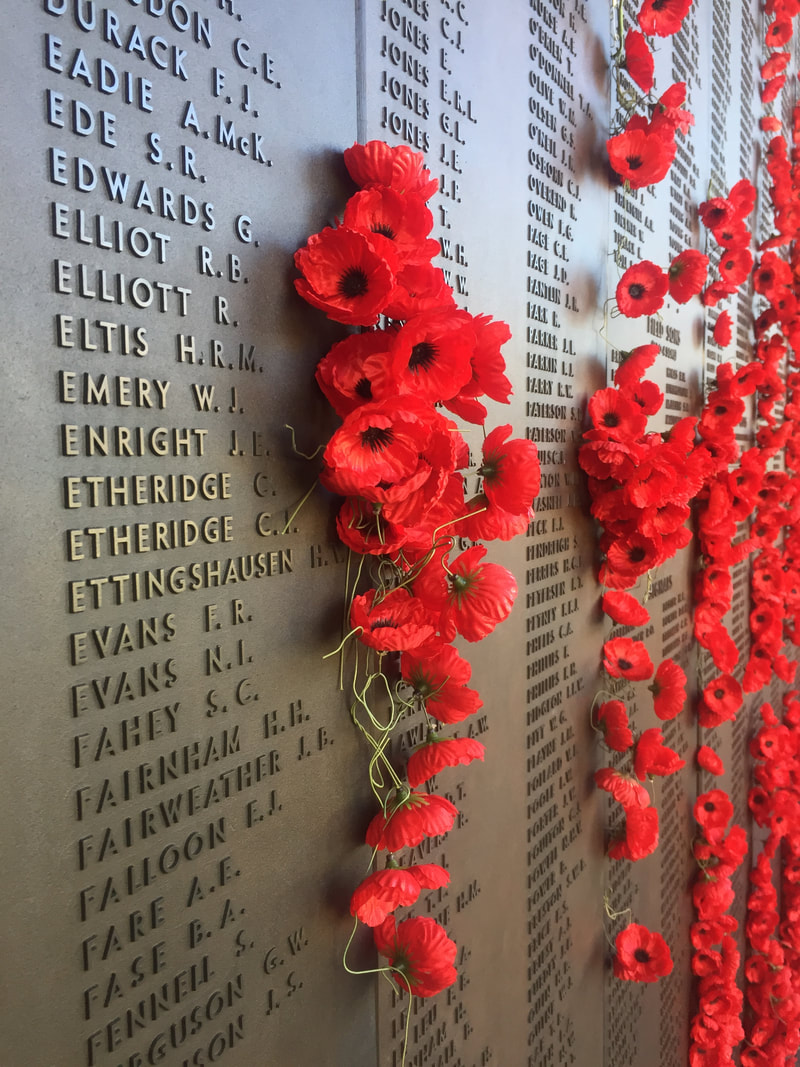
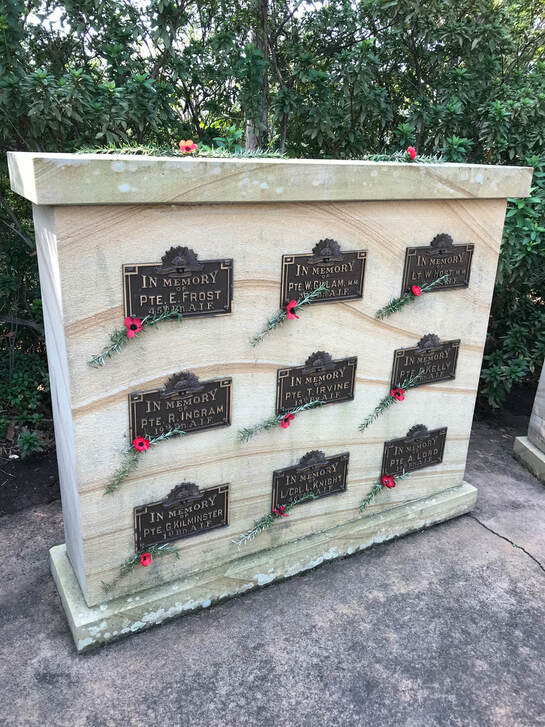


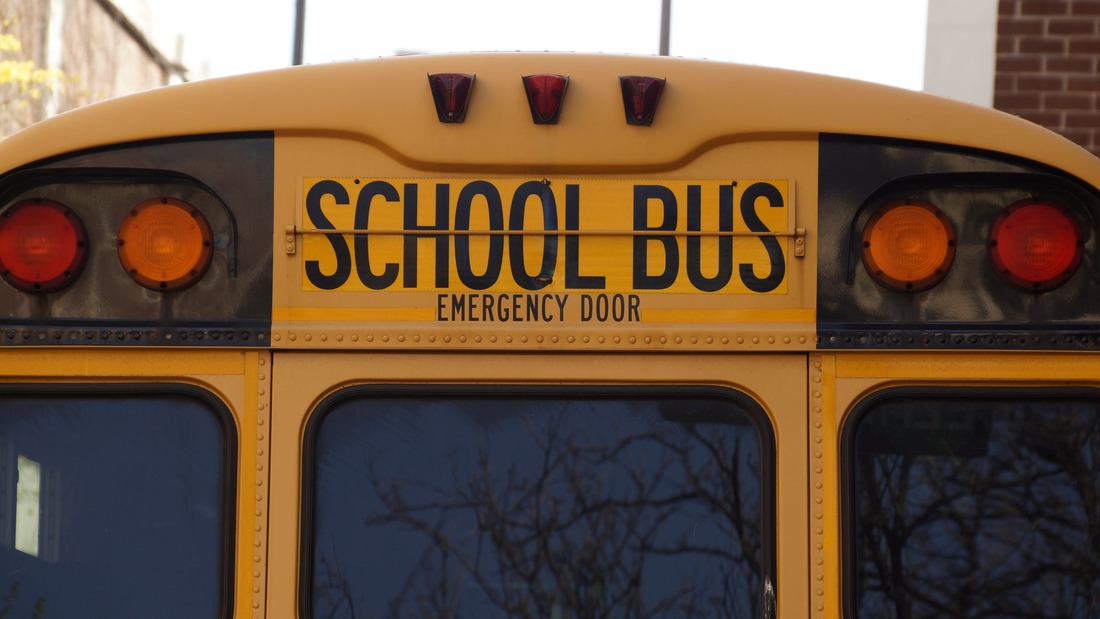
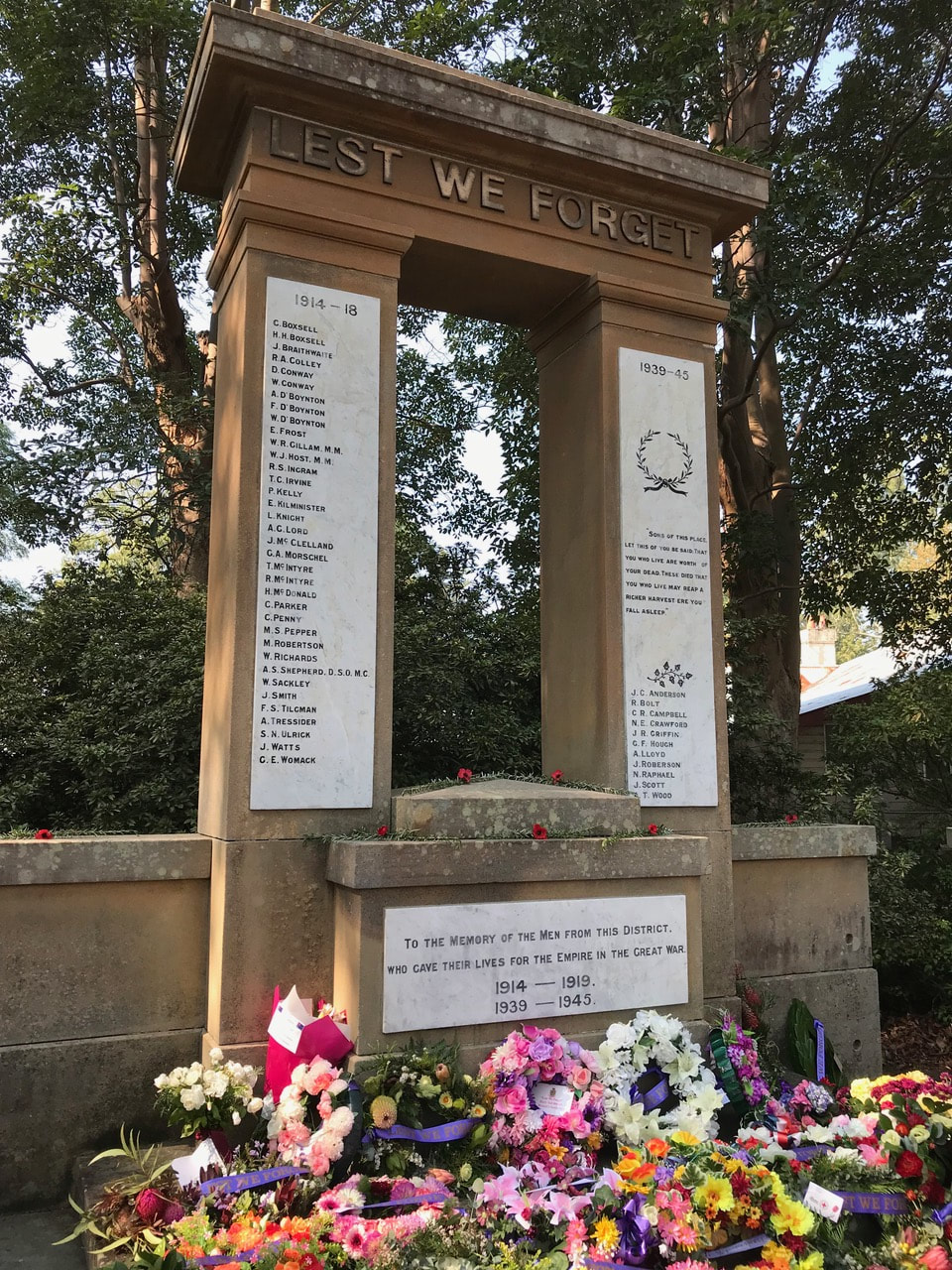
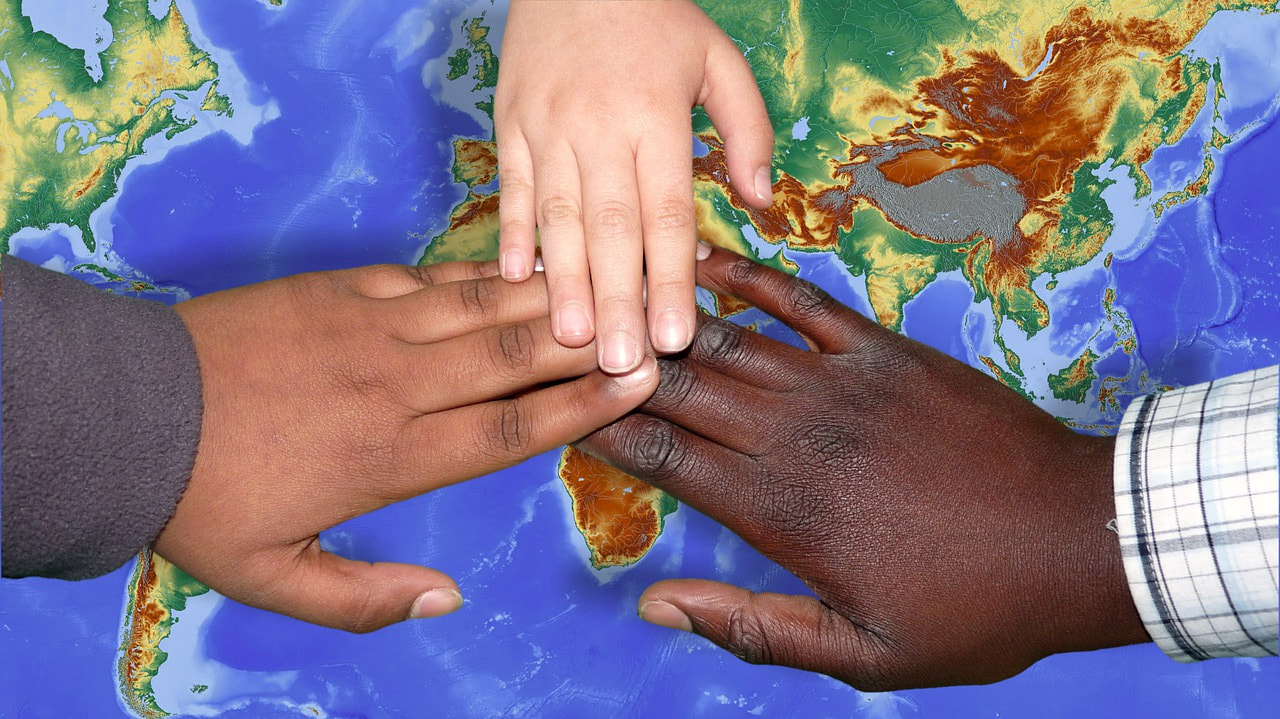
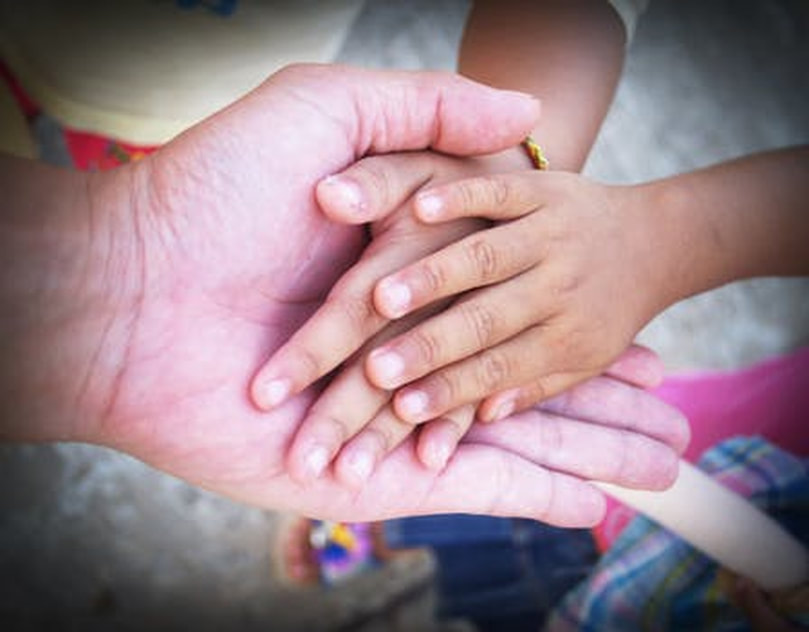
 RSS Feed
RSS Feed